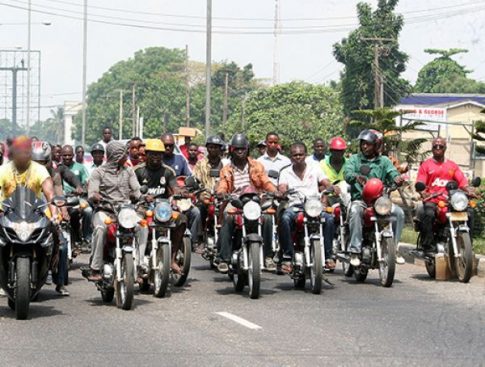Lagos Commuters Suffer as Some Uber, Bolt Drivers Down Tools
The challenges faced by ride-hailing platforms in Africa’s most populated city, Lagos takes a drastic turn as vehicle owners have started withdrawing their cars from the platforms of Uber and Bolt, operators of Taxify.
The development has not only worsened the dire situation faced by commuters owning to the earlier ban on motorcycle and tricycle taxis and ride-hailing start-ups such as Gokada, Max.ng and ORide, but has led to a steep hike in transport fares to as much as 300% in some instances.
Barely a week after the shocking ban on commercial motorcycles and tricycles, including bike hailing rides. Lagos State is reportedly gearing up to clampdown on taxi-hailing companies while implementing laws for commercial drivers.
The decision by the Lagos State government targeting operators of various ride-hailing platforms is responsible for the gradual withdrawal of their vehicles to avoid arrests and possible impounding by the authorities.
Read also:Egypt ’s Transport Startup Halan Raises $15 million in a Series B round
Over the week, our findings show that some drivers of these ride-hailing companies have also been reportedly arrested as the Lagos government is said to be enforcing ‘necessary’ laws against them.
According to an official of the Lagos State Internal Revenue Service, the State government through its relevant agencies had last year notified the operators of the need for all commercial vehicle drivers, including those on the ride-hailing platforms, to be certified by the Lagos Drivers’ Institute (LASDRI) before they can operate in the state.
The official who wouldn’t want to be mentioned because he was not authorized to speak on the issue told African Heroes that this certification by LASDRI is mandatory for all professional drivers in Lagos and is to be re-certified once every year. The official added that they are to have what’s called a “hackney permit.”
Without it, the driver risks having his vehicle impounded which attracts a huge fine. Some of the drivers who spoke to this Correspondent said that it costs about N60,000 ($180) to get vehicles released if impounded.
There are also claims that Uber is yet to pay an Operator License fee to the state government which it has not done since it started operating in the state.
Moreso, the vehicles being used for the ride-hailing operations are registered as private vehicles which is against the laws of Lagos State because they are supposed to change their vehicle registration to commercial, a source at the Lagos State government Secretariat Alausa told this Correspondent.
The overall impact of this action has caused untold hardships on commuters across the state with about five million people are without means of transportation as a result. To this end, members of a civil society organisations, Community Rights Action Group is calling on the state government to ensure enforcement with human face.
Kelechi Deca

Kelechi Deca has over two decades of media experience, he has traveled to over 77 countries reporting on multilateral development institutions, international business, trade, travels, culture, and diplomacy. He is also a petrol head with in-depth knowledge of automobiles and the auto industry

